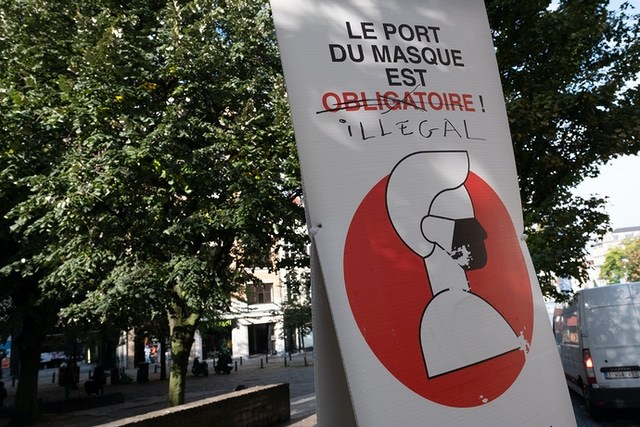After months of being subjected to requests for amendments by the opposition, the Belgian pandemic law, proposed by Home Affairs minister Annelies Verlinden, has been given the green light by the federal parliament.
On Thursday evening, as Belgium was being tormented by severe rainfall and flooding, the text, which aims to strengthen the legal framework for measures in the event of a pandemic, was given a majority of the votes.
"The future is well prepared. Thanks to the pandemic law, we are strong both organisationally and legally," Verlinden said in a press release on Thursday evening.
Following extensive discussion over the preliminary draft and the draft itself, the proposal for the pandemic bill was ready for a vote in parliament in May this year, however, the final vote in parliament was delayed due to the opposition tabling amendments and requesting the opinion of the Council of State.
Related News
- 'Pessimistic models' predict fourth wave in Belgium, warns Van Gucht
- European Commission launches legal action against Hungary for anti-LGBTQ+ law
- Parliament holds marathon session to clear the decks
The act will provide an additional legal basis for the government to take far-reaching measures during health crises, such as lockdowns and travel bans, replacing the current method of using ministerial decrees, which has been previously criticised for being undemocratic and even resulted in a Brussels court ordering the Belgian State to lift "all coronavirus measures," arguing the legal basis for them was insufficient.
In future, according to the act, declaring an epidemiological emergency would have to be made by royal decree, after which parliament would get 15 days to rectify it, rather than just two to five days, as is the case now. This should allow for a more thorough debate on the decisions at hand.
Only after this process can the government take a series of measures to control the crisis.
However, the opposition has argued that even the pandemic law erodes the power of parliament and the regional governments. In its criticism of the text, the Flemish nationalist party N-VA argued there are legal problems in the text as well.
However, the Council of State, as well as several courts of appeal have repeatedly confirmed that the current legal basis is sufficient for imposing restrictive measures in the event of a health crisis, according to Verlinden.
"Ensuring legal certainty and protection, parliamentary involvement, democratic control and the greatest possible transparency in the management of a crisis are the foundations of the pandemic law," Verlinden's press release stated.

